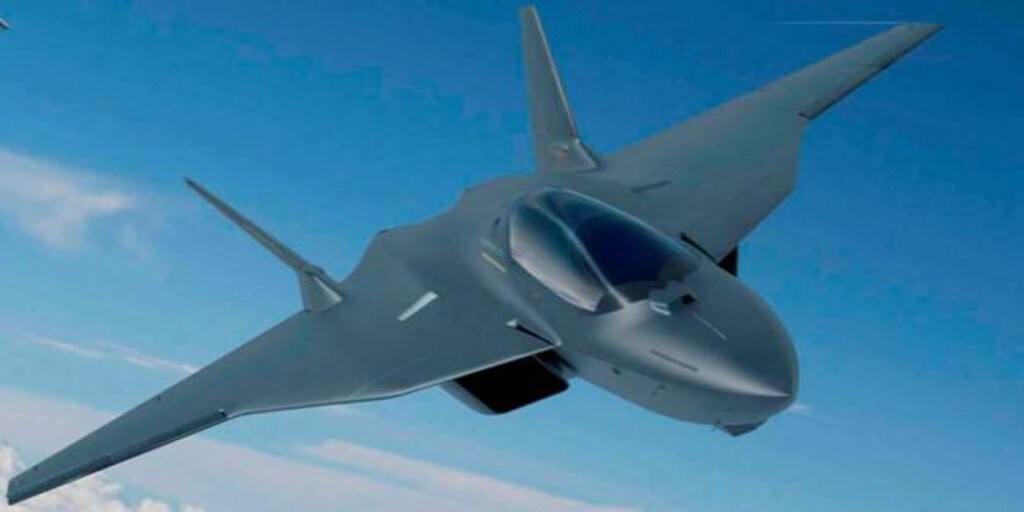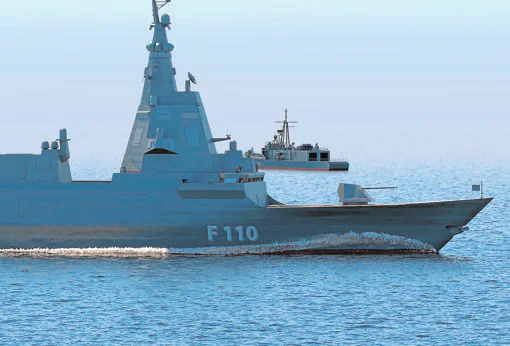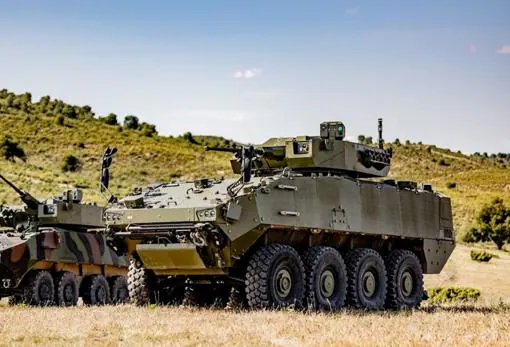The moment of truth for the 8x8, the F-110 frigates and the FCAS

MADRID
Updated:
Keep
Three major projects constitute the cornerstone of the Spanish defense industry - land, sea and air - for the next few years. They are the new 8x8 Dragon armored vehicle of the Spanish Army, the future F-110 frigate of the Spanish Navy and the European combat aircraft of the future, known as FCAS, a project in which Spain is a partner of France and Germany.

Regarding the first, new contracts and the unlocking of its financing are milestones that have been achieved this year. All this after its eventful history, the contract being declared void in December 2019. Finally, last year, the
Ministry of Defense signed the contract with the temporary union of companies Tess Defense, where Santa Bárbara Sistemas, Indra, Sapa Placencia and Escribano Mechanical & Engineering are located.
This is a € 2,083 million contract to manufacture 348 8X8 'Dragon' Wheeled Combat Vehicles (VCR), with a duration of ten years. The impact would be about 9,000 jobs.
It must be remembered that the original intention of the Ministry of Defense was to manufacture a total of one thousand vehicles, so this contract could have new phases in the future.
However, the award of 219 remote 30mm firing towers. The company Escribano was the subject of a subsequent appeal by PAP Tecnos, Rafael's Israeli subsidiary in Spain, which remains unresolved.
Tess Defense and Feindef
Definitely, Feindef will be the ideal setting for Tess Defense to clarify the moment in which the industrial project is located -Vital for the four companies- and the schedule in which the first units are expected to be manufactured, which the Army expects to have operational by the end of 2022.
Regarding the naval industry, once the S-80 submarine has been launched and its technical problems solved, Navantia sets its priority in the next five
F-110 frigates, called to replace the current F-80, with an estimated cost of 4,300 million euros. This project will have a global impact of 7,000 jobs, 1,300 direct, according to estimates by the SEPI shipyard itself.
The F-110 program is not only important for Navantia from the point of view of the workload for its Ferrol shipyard, where construction is expected to begin next March, but also to carry out a jump technology towards Shipyard 4.0, as Navantia itself calls it.
«The F-110 will inaugurate innovations such as the block factory, a 'smart factory' that will automate processes and minimize errors with the consequent improvement in times and qualities. From the same block phase to the end of the operational life cycle, the F-110 incorporates the Digital Twin: a key concept for Shipyard 4.0, which consists of a 3D virtual reality replica of a physical product ", they report from the shipyard.
The Navantia stand will have a scale model of the F-110 equipped with an augmented reality application where the user can select and view the operation of the various systems that make up the ship.
Regarding the aeronautical industry, the project of the future for the coming decades is the so-called FCAS ('Future Combat Air System') that involves, in Spain, above all, the technology company Indra - which acts as a leading company - and the aeronautical Airbus .

Respect FCAS is a "system of systems" that aims to become the future combat aircraft of Germany, France and Spain as of 2040. As industrial sources emphasize, "it is not a mere airplane but a set of technologies that should provide air superiority and connectivity with other military platforms (drones, ships ...)". In other words, it will involve a great technological leap for Spanish and European industry.
On August 31, the three governments involved launched new phases of technological development and training. These phases will end in 2027 and have an estimated investment of 8,000 million euros. Other Spanish companies such as Sener, GMV, ITP Aero or Tecnobit are also in the project.
However, not everything is FCAS. Airbus hopes that Feindef will give some clue as to whether Spain will finally sign a contract in 2022 to acquire new Eurofighter fighters to replace a score of F-18s from the Gran Canaria base.









